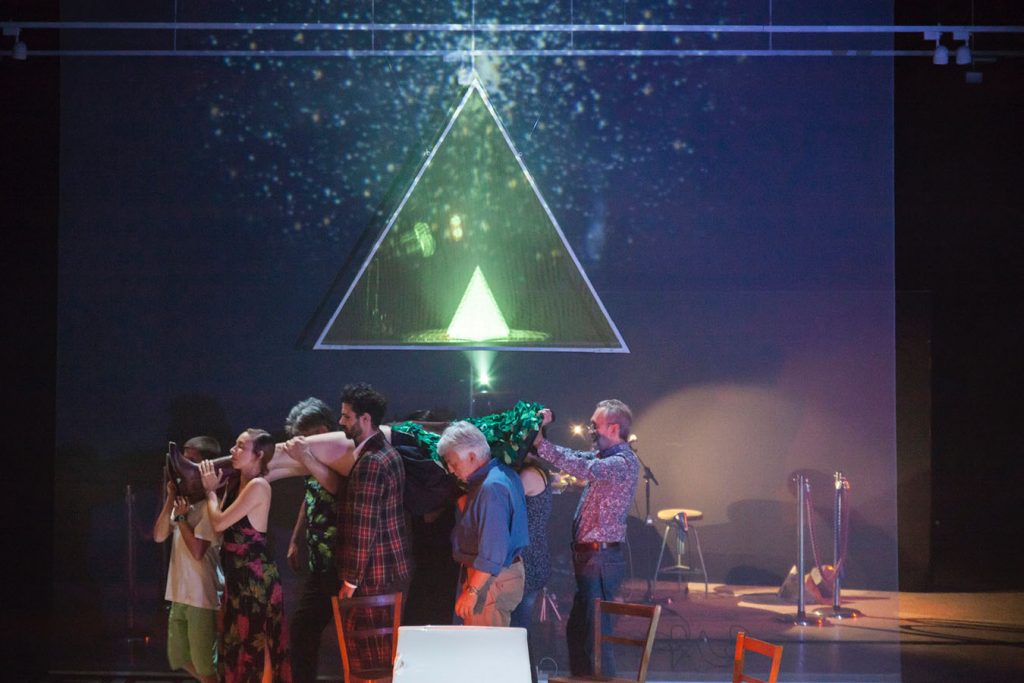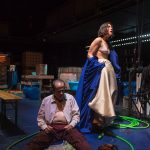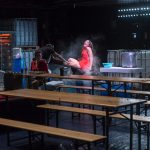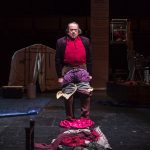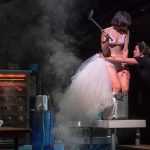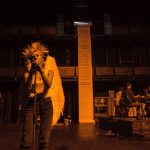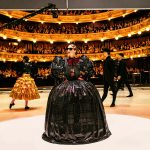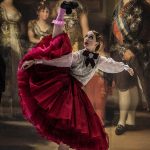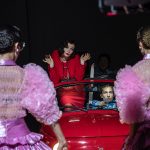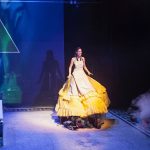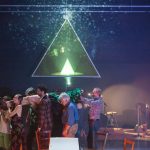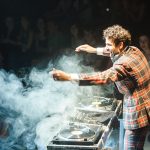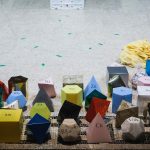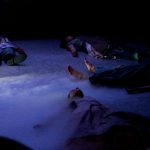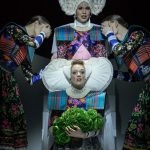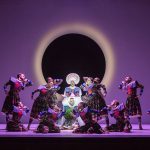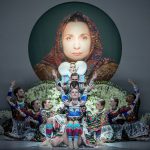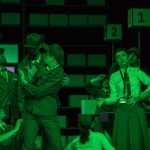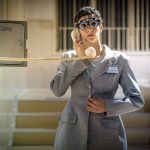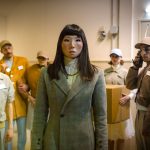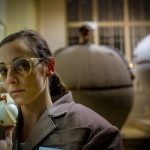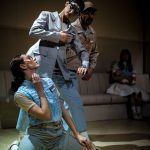The first time we met, Sílvia Delagneau (Salamanca, 1981) warned us: “I’m a costume designer and scenographer but not an orator.” For her, theatre means “being and doing”, it means presence and action, intuition and creation, collective knowledge rather than individual reflection. It is, in the end, potential freedom. We are not surprised when we enter her website and see the message: “Maintenance mode. Sorry for the inconvenience.”1 Sílvia seems to be in constant transformation, always working, searching, creating. But never in isolation. She makes it clear that, for her, the most exceptional characteristic of performing creation is teamwork; a group that emerges out of “the need to share things that are closely linked to our way of life.” And she confesses: “I’m hopeless, as you can see.” Sorry for the inconvenience.
Sílvia is highly renowned for her work as a scenographer but, above all, as a costume designer. She has worked with creators such as Àlex Rigola and Albert Arribas and with companies such as Indi Gest, Agrupación Señor Serrano and La Veronal. She tells us that theatre had never formed part of her family tradition. “It was by seeing things that I didn’t like in theatre that I decided I wanted to do theatre; to meet people that wanted to do the same things as me.” She began her professional career as a photographer and through this discipline she realised that what she liked most was looking in order to later create a fiction that imitated reality. Through this idea of recreation, Sílvia shapes a very personal poetic viewpoint in all the projects she participates in. Like the members of the Agrupación Señor Serrano say, Sílvia is “a person who, in her creations, manages to add layers and layers to what is real until she conceals it. A way of understanding scenography and performing creation through installation and the visual arts.” It is rare to find a performing creator with so much artistic personality that, when we look at any project she has participated in, we can immediately identify her hallmark without checking the credits of the programme.
Out of photography came the desire to work on special effects make-up. But, in this field, Sílvia missed the artistic dialogue that collective creation affords. Perhaps for this reason, and as she explains, almost at random she started creating scenic spaces and costumes with the group Indi Gest. And maybe ‒ who knows ‒ it is this innate trust in intuition, or her creative promiscuity, or the lack of family tradition, or the fact of having begun to work as a scenographer almost by chance, or perhaps her self-confessed hopelessness, or her endless curiosity, that has given Sílvia’s work a completely free, playful and very personal vision. When you speak with Sílvia you have the constant feeling that everything is possible and everything is yet to be done. And that it must be done. Or, at least, you must try.
Although she usually works as a costume designer, Sílvia warns us that she not only designs costumes: “When I design I don’t think of street clothing, but of concepts. Lately, rather than dressing a character, what I do is design a possible dramaturgy”: a body-language, probable actions, a specific performativity. This expanded vision of the craft of costume designer gives Sílvia’s work an inevitably contemporary perspective. It is no surprise, therefore, that in the credits of the show Ivànov, by Àlex Rigola, Sílvia appears as “character and mask designer” rather than “costume designer”. In fact, while we talk with Sílvia, we realise that her work table is covered by tiny bananas, miniature animals, cuts of cloth, sketches, model cars... Objects that invite play, action.
Our talk with Sílvia ends with two reflections that seem to have a key importance in her way of understanding creation. The first has to do with what interests her most about theatre: the process of creation, teamwork. “I’ve never done commercial theatre. If doing commercial theatre means having shorter creation processes, it doesn’t interest me.” You need to have time to make mistakes: “Not all the ideas are good right away; you need to try again and again.” And she complains about the poor dialogue established within the artistic panorama of Barcelona: theatre, dance, performance, art intervention, the visual arts... seem to be looking in different directions.
Sílvia’s second reflection concerns a widened conception of the idea of theatre space: “In our generation, we’ve been told to be respectful with our use of the public space. And perhaps this respect has meant that we don’t make the environment our own. This possibly also happens with the theatre space […] What we have to do with the seats is to fill them, no matter where they are.” And, out of the blue, she begins imagining performing possibilities in uncommon spaces: “Perhaps we could start by occupying the pews in churches.“ And, as if it were completely natural, the meeting does not end with a reflection on theatre but with proposals and ideas for a new show. As we mentioned, for Sílvia, theatre is action rather than thought.
--
1 Consultation made on 10 May 2019.















